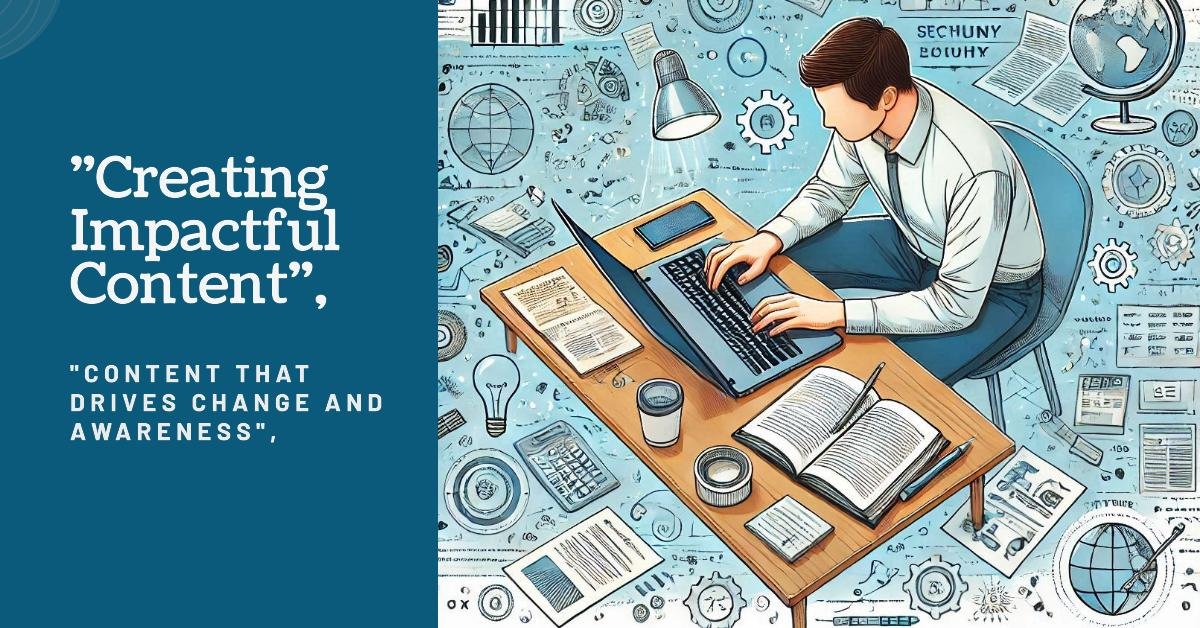
In the B2B sector, understanding and responding to customer needs is paramount. AI is allowing marketers to personalize their strategies in once unimaginable ways, delivering highly relevant content and messaging that speaks directly to each client’s needs.
AI algorithms can analyze vast customer data, including browsing history, purchase patterns, and social media activity, to create hyper-personalized content. This content can be tailored emails, customized social media posts, and dynamic website experiences. By understanding customer preferences and behaviors, AI allows marketers to create content that resonates deeply with individual clients, fostering stronger relationships and increasing engagement.
AI doesn’t just personalize content in one static form. It can also create dynamic content that adapts in real-time based on user interactions. Whether a customer is browsing your site or engaging with an email campaign, AI can adjust the messaging to meet their immediate needs, ensuring that the most relevant information is delivered at the most opportune moment.
AI-powered predictive analytics tools can analyze customer data to predict future behavior, allowing B2B marketers to anticipate needs before they arise. For instance, AI can forecast which customers will most likely purchase a product when they need additional support or identify potential churn risks. With this foresight, businesses can proactively address concerns, optimize engagement, and improve retention rates.

Routine marketing tasks that once consumed significant time and resources can now be automated thanks to AI. This means marketers can focus more on strategic initiatives while leaving repetitive tasks to machines.
Content Creation: AI can assist with content generation in various ways. It can suggest content topics, create drafts, and even write blog posts or social media updates. With natural language processing (NLP) technology, AI tools can mimic human writing styles, ensuring that the content produced maintains brand consistency. This can dramatically speed up content production and ensure it aligns with audience interests and SEO best practices.
Email Marketing: AI can take email marketing to the next level by automating entire campaigns. From crafting personalized subject lines to optimizing send times for maximum impact, AI tools ensure that emails are delivered to the right people at the right time with the right message. This can lead to higher open rates, improved click-through rates, and better conversions.
Social Media Management: AI can also help manage social media by scheduling posts, monitoring conversations, and analyzing engagement metrics. With AI-powered tools, businesses can track social media sentiment, identify emerging trends, and optimize their content strategy to improve online visibility and engagement.
AI excels at analyzing large volumes of data, providing actionable insights that would be difficult for humans to uncover. With advanced analytics, predictive modeling, and real-time insights, AI gives B2B marketers a deeper understanding of customer behavior and market trends.
Advanced Analytics: AI-powered analytics tools can uncover hidden patterns within large datasets. These tools help marketers spot trends, identify opportunities, and make data-driven decisions. For example, AI can segment customer data based on behavior or preferences, allowing businesses to fine-tune their targeting strategies.
Predictive Modeling: Predictive analytics allows AI to forecast future customer behavior, such as when they might be ready to purchase or need additional services. By understanding these patterns, marketers can proactively tailor their campaigns to meet customer needs, resulting in more efficient and effective marketing efforts.
Real-Time Insights: AI tools provide real-time insights into customer interactions and market conditions, enabling marketers to make informed decisions and adapt quickly. Whether monitoring a live campaign or tracking customer sentiment, AI helps marketers stay agile, responding to changes and opportunities as they arise.
Exceptional customer service is a crucial part of any successful B2B strategy. AI can help improve customer service by providing instant, 24/7 support and gaining deeper insights into customer satisfaction.
AI-Powered Chatbots: Chatbots are one of the most popular AI applications in customer service. These intelligent bots can answer customer inquiries, resolve issues, and provide support around the clock. With AI, chatbots can handle more complex requests, improving the overall customer experience and allowing human agents to focus on higher-level tasks.
Sentiment Analysis: AI can analyze customer feedback from surveys, reviews, or social media posts to gauge sentiment. By identifying positive or negative emotions, businesses can take quick action to address concerns or capitalize on satisfied customers. This real-time analysis helps marketers maintain high levels of customer satisfaction and loyalty.
AI doesn’t just automate tasks—it also optimizes marketing campaigns, making them more effective and cost-efficient. From A/B testing to ad targeting, AI helps marketers make data-driven decisions that improve ROI.
A/B Testing: AI can streamline the A/B testing process by automatically testing different ads, landing pages, or email versions. The system can track performance and make recommendations for improvement, helping marketers quickly identify the best-performing variations without analyzing test results manually.
Ad Targeting: AI can enhance ad targeting by analyzing customer data to serve ads to the right people at the right time. Through machine learning algorithms, AI can predict which customers are most likely to engage with specific ads, improving your advertising efforts’ efficiency and relevance.
Programmatic Advertising: AI-driven programmatic advertising allows for the automated buying and placement of ads across digital channels. AI can analyze vast amounts of data to optimize ad spending, ensuring ads are shown to the most relevant audience and improving overall campaign performance.
While AI offers numerous benefits, using it ethically and responsibly is essential. Here are some key ethical considerations for marketers:
Data Privacy and Security: As AI relies on vast amounts of data, it’s crucial to ensure that all customer information is collected and stored securely, in compliance with data privacy regulations such as GDPR. Marketers must be transparent about customer data use and prioritize protecting sensitive information.
Bias and Fairness: AI algorithms are only as good as the data they’re trained on. AI can perpetuate biases in marketing campaigns if the data used is biased. Marketers must be vigilant and ensure that AI systems are fair and unbiased, avoiding discriminatory practices in targeting, content creation, and decision-making.
Transparency: B2B marketers should be transparent about their use of AI, ensuring that customers understand how AI shapes their experiences. Misleading or deceptive practices could erode trust and damage a brand’s reputation.
The future of B2B marketing is undoubtedly AI-driven. As AI technology continues to evolve, we can expect even more innovative applications, including:
By embracing AI, B2B marketers can stay ahead of the competition, unlocking new opportunities for growth and efficiency. As AI continues to evolve, the possibilities for its application in marketing are endless.
AI-powered B2B marketing is revolutionizing how businesses engage with customers. From personalizing content and automating tasks to providing real-time insights and improving customer service, AI enables B2B marketers to be more efficient, effective, and customer-centric. However, using AI ethically is essential, keeping data privacy and fairness in mind to build trust with clients and customers.
As AI advances, B2B marketers who embrace this technology will be well-positioned to unlock new opportunities, drive growth, and stay ahead in an increasingly competitive market.

